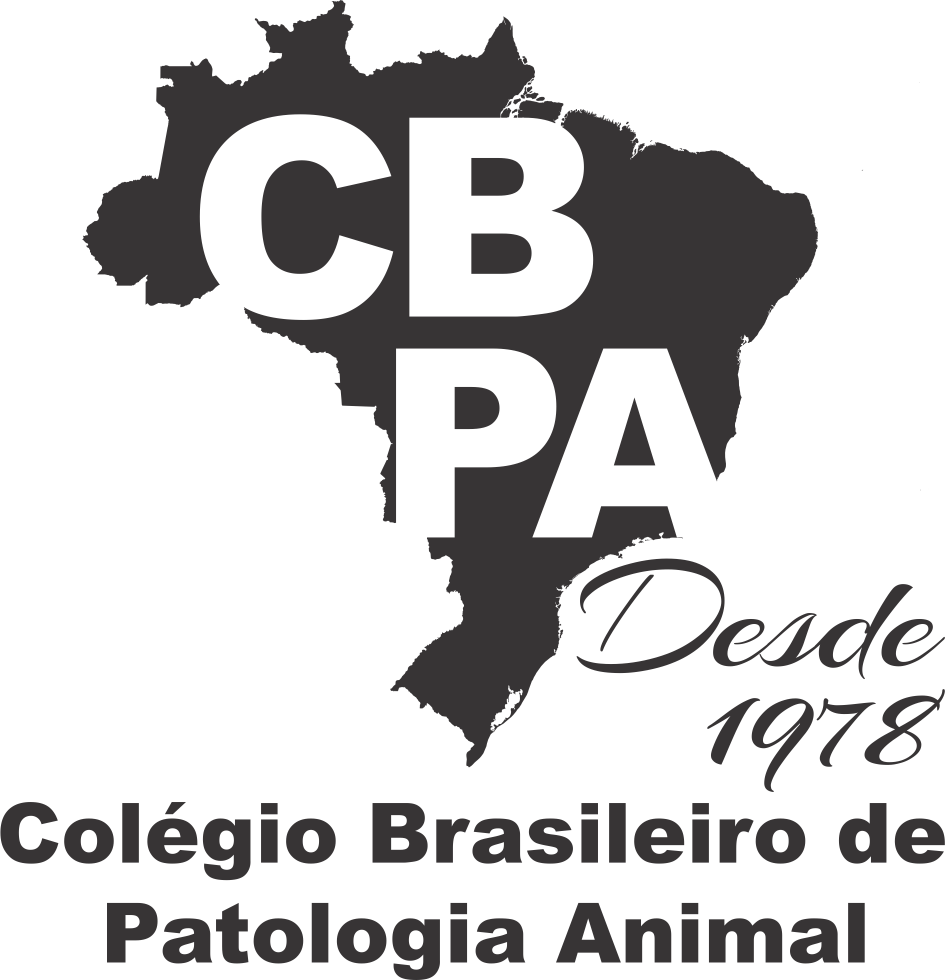Resultado da pesquisa (2)
Termo utilizado na pesquisa Weiss L.H.N.
#1 - Occurrence of Salmonella sp in finishing pigs in Rio Grande do Sul, Brazil, 22(3):104-108
Abstract in English:
ABSTRACT.- Weiss L.H.N., Nonig R., Cardoso M. & Costa M. 2002. [Occurrence of Salmonella sp in finishing pigs in Rio Grande do Sul, Brazil.] Ocorrência de Salmonella sp em suínos de terminação no Rio Grande do Sul. Pesquisa Veterinária Brasileira 22(3):104-108. Depto Medicina Veterinária Preventiva, Faculdade de Veterinária, UFRGS, Av. Bento Gonçalves 9090, Porto Alegre, RS 91540-000, Brazil.
Pen feces samples were taken in ten finishing farms in Rio Grande do Sul (Brazil) and submitted to Salmonella isolation protocol. Two farms negative and one positive in the preliminary screening were chosen, and feces from 25 randomly selected pigs in each of them were individually collected. The sarne animals were later sampled (rectal swab, intestinal content and mesenteric lymph nodes) at the slaughterhouse. After the introduction of new animals into farm Nl and Pl, other 25 pigs on each farm were examined as described above. In the preliminary screening, Salmonella was isolated from pen feces samples of 3 of the 10 investigated farms. Two of these herds showed a high level contamination. Eight Salmonella serotypes (Agona, Bredeney, Lexington, London, Mbandaka, Panama, Schwartzengrund, Salmonella sp) were found, with serotypes Agona and Bredeney being the most frequent. When individual animals were sampled, Salmonella was isolated in all selected farms. Salmonella was isolated in 6.4% of feces collected on the farm, 5.3% of intestinal contents and 5.6% of lymph nodes. Antibiogram testing of the isolated strains showed 97.8% resistance to sulphonamides, 82.6% to streptomycin, 36.9% to tetracyclin and 15.2% to sulfazotrim.
Abstract in Portuguese:
RESUMO.- Weiss L.H.N., Nonig R., Cardoso M. & Costa M. 2002. [Occurrence of Salmonella sp in finishing pigs in Rio Grande do Sul, Brazil.] Ocorrência de Salmonella sp em suínos de terminação no Rio Grande do Sul. Pesquisa Veterinária Brasileira 22(3):104-108. Depto Medicina Veterinária Preventiva, Faculdade de Veterinária, UFRGS, Av. Bento Gonçalves 9090, Porto Alegre, RS 91540-000, Brazil.
Foram colhidas amostras de fezes de lote de suínos em 10 granjas terminadoras do Estado do Rio Grande do Sul para pesquisa de Salmonella sp. Duas granjas consideradas negativas (Nl e N2) e uma positiva (Pl) nesta primeira etapa foram escolhidas para colheita de amostras de fezes individuais de 25 animais escolhidos aleatoriamente. No abatedouro foram coletados swab retal, conteúdo intestinal e linfonodos mesentéricos dos mesmos animais amostrados na granja. Após a introdução de novos animais nas granjas Nl e Pl, outros 25 animais foram amostrados em cada granja, da mesma forma descrita acima. Três granjas tiveram amostras de fezes de lote positivas, sendo que em duas foi constatado um alto nível de contaminação. Foram encontrados 8 sorotipos de Salmonella (Agona, Bredeney, Lexington, London, Mbandaka, Panama, Schwartzengrund, Salmonella sp), sendo os sorotipos Agona e Bredeney os mais encontrados. Na colheita individual realizada, todas as granjas amostradas foram positivas. Em 6,4% das amostras de fezes colhidas na granja, 5,3% das amostras de conteúdo intestinal e 5,6% dos linfonodos mesentéricos foi possível isolar Salmonella. O antibiograma das linhagens de Salmonella isoladas demonstrou 97,8% de resistência à sulfonamida, 82,6% à estreptomicina, 36,9% à tetraciclina e 15,2% à sulfazotrim.
#2 - Seroepidemiology on Rhodococcus equi in horses from Bagé county, RS, by using the synergistic hemolysis inhibition test
Abstract in English:
Rhodococcus equi seroepidemiological studies were conducted. Sera used were collected from 290 apparently clinically normal mares and foals. The samples originated from 6 horsebreeding farms, located in the county of Bagé, Rio Grande do Sul, Brazil, which had diferente histories of Rhodococcus equi infections. To correlate the serological results with the presence of the agent in the intestine 123 fecal samples were collected. The synergistic hemolysis inhibition test was used. The test detects antibody against the "equi factor". Neutralizing antibodies against the equi factor were verified in 87.93% (255/290) of the animales tested. The geometric mean titer (GMT) of antibodies was higher in the foals when comparad with the mares. The serological results had a correlation with the isolation of R-. equi in the feces. The rate of R. equi isolation and GMT titers was higher at the horse-breeding farm where clinical cases were registered. Further studies need to be done to establish the relation among the importance of serological titers and disease detection.
Abstract in Portuguese:
Com o objetivo de avaliar a situação soroepidemiológica da infecção por Rhodococcus equi na região de Bagé, RS, foram testadas 290 amostras de soro sanguíneo de éguas e potros aparentemente sadios, obtidos de 6 haras com diferentes histórias de rodococose. Para relacionar o resultado sorológico com a presença deste agente bacteriano no trato intestinal destes animais, foram coletadas 123 amostras de fezes. O teste sorológico utilizado foi a inibição da hemólise sinérgica (IHS) que detecta anticorpos neutralizantes contra o "fator equi". Um percentual de 87,93% (255/290) dos animais amostrados apresentaram estes anticorpos. O título médio geométrico (GMT) destes anticorpos foi mais elevado nos potros do que nas éguas. A soropositividade destes equinos ao teste sorológico teve correlação com o isolamento do R. equi nas fezes dos respectivos animais. A maior taxa de isolamento de R. equi das fezes dos equinos e o maior GMT, ocorreu no único haras com casos clínicos recentes de enfermidade causada por esta bactéria. No entanto, todos os animais deste e dos demais haras, encontravam-se aparentemente sadios, sendo necessário, estabelecer em trabalho futuro, a possível relação entre títulos de anticorpos e sua importância na detecção da enfermidade.









